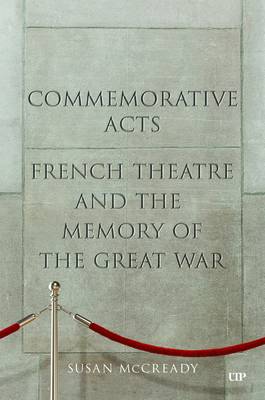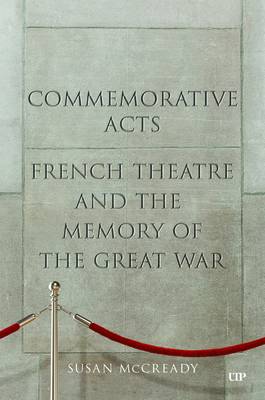
Bedankt voor het vertrouwen het afgelopen jaar! Om jou te bedanken bieden we GRATIS verzending (in België) aan op alles gedurende de hele maand januari.
- Afhalen na 1 uur in een winkel met voorraad
- In januari gratis thuislevering in België
- Ruim aanbod met 7 miljoen producten
Bedankt voor het vertrouwen het afgelopen jaar! Om jou te bedanken bieden we GRATIS verzending (in België) aan op alles gedurende de hele maand januari.
- Afhalen na 1 uur in een winkel met voorraad
- In januari gratis thuislevering in België
- Ruim aanbod met 7 miljoen producten
Zoeken
€ 114,45
+ 228 punten
Omschrijving
In the aftermath of the Great War, a remarkable wave of collective commemoration emerged, but the aesthetic diversity of this period has often been overshadowed by a singular focus on the combatant experience, primarily conveyed through fiction and memoir. This selective historical narrative has fostered a homogenized memory of the war, neglecting the rich array of cultural productions that also emerged alongside it. Commemorative Acts challenges these prevailing assumptions about the memory of the Great War and its literary expression in interwar France by spotlighting theatrical works that have largely been forgotten.
The book uncovers how the dominance of first-person accounts of soldiers' experiences has subtly, yet powerfully, narrowed our understanding of what the memory of the Great War can encompass. It explores how drama, structurally at odds with the first-person perspective and defined by its simultaneous modes of expression and reception, has been lost to collective memory. By examining the unique capacity of the dramatic form to capture war trauma, Commemorative Acts offers insights that differ from those of other literary genres, highlighting the theatre's potential to provide a more expansive and nuanced understanding of interwar memorial culture.
The book uncovers how the dominance of first-person accounts of soldiers' experiences has subtly, yet powerfully, narrowed our understanding of what the memory of the Great War can encompass. It explores how drama, structurally at odds with the first-person perspective and defined by its simultaneous modes of expression and reception, has been lost to collective memory. By examining the unique capacity of the dramatic form to capture war trauma, Commemorative Acts offers insights that differ from those of other literary genres, highlighting the theatre's potential to provide a more expansive and nuanced understanding of interwar memorial culture.
Specificaties
Betrokkenen
- Auteur(s):
- Uitgeverij:
Inhoud
- Aantal bladzijden:
- 194
- Taal:
- Engels
- Reeks:
Eigenschappen
- Productcode (EAN):
- 9781487564094
- Verschijningsdatum:
- 25/11/2025
- Uitvoering:
- Hardcover
- Formaat:
- Genaaid
- Afmetingen:
- 154 mm x 232 mm
- Gewicht:
- 362 g

Alleen bij Standaard Boekhandel
+ 228 punten op je klantenkaart van Standaard Boekhandel
Beoordelingen
We publiceren alleen reviews die voldoen aan de voorwaarden voor reviews. Bekijk onze voorwaarden voor reviews.









